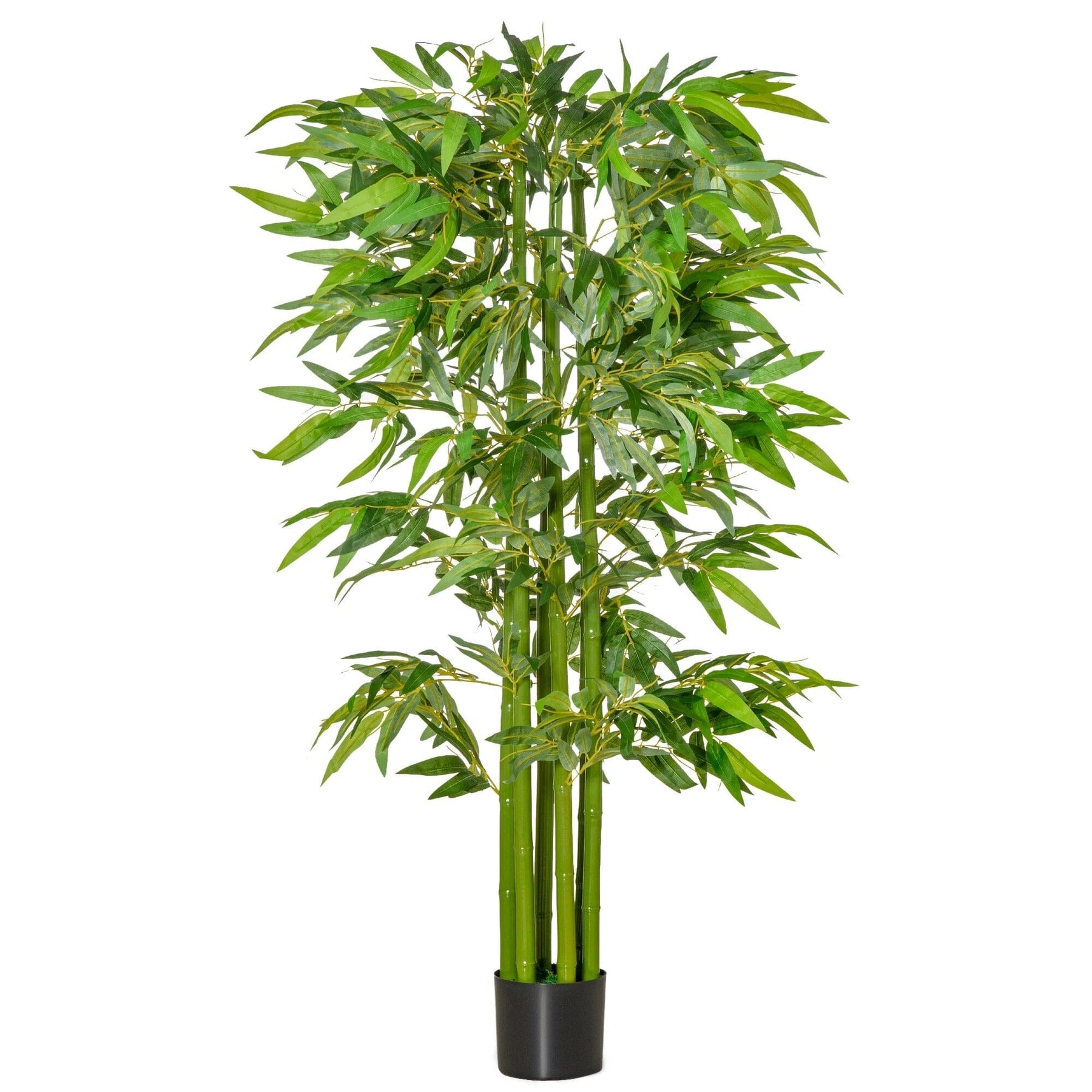🌿 Create a natural and elegant privacy screen with bamboo . Discover the best varieties for a sustainable plant screen, their advantages, their disadvantages, and the best practices for maintaining them. 🌱

1. Why choose bamboo for a privacy screen? 🌾
Bamboo is one of the best choices for a plant privacy screen thanks to its many advantages:
- Fast growing: Some varieties reach 4 to 5 meters in just 2 years.
- Aesthetics: Brings a zen and exotic touch to your garden.
- Versatile: Suitable for both large and small spaces.
- Evergreen: Dense foliage all year round for optimal privacy.
💡 Good to know
Bamboo purifies the air and promotes biodiversity. Ideal for a garden that is both functional and ecological!
2. The best varieties of bamboo for a privacy screen 🌿
🌱 Fargesia Bamboo

Type: Non-creeping bamboo
Height: 3 to 5 meters
Special features: Perfect for small gardens
✅ Advantages
- Does not require a rhizome barrier.
- Dense foliage ideal for a plant screen.
- Good resistance to cold (-20°C).
❌ Disadvantages
- Grows slightly less quickly than creeping varieties.
- Requires regular watering in summer.
🌱 Phyllostachys Bamboo

Type: Creeping bamboo
Height: Up to 8 meters
Special features: Ideal for large spaces
✅ Advantages
- Grows extremely quickly.
- Lush foliage, perfect for blocking views.
- Suitable for high hedges.
❌ Disadvantages
- Requires a rhizome barrier to limit its expansion.
- Can become invasive without maintenance.
🌱 Bamboo Pleioblastus

Type: Creeping bamboo
Height: 1.5 to 2.5 meters
Special features: Ideal for low hedges
✅ Advantages
- Perfectly suited for small spaces.
- Ornamental foliage with varied hues.
- Easy to trim to maintain precise height.
❌ Disadvantages
- Less covering than tall varieties.
- Requires a rhizome barrier to prevent spread.
💡 Gardening Tip
If you choose a creeping bamboo, install a rhizome barrier when planting to limit its spread. This will save you a lot of trouble! 🚧
3. How to maintain your bamboo privacy screen? 🌱
- Watering: Water regularly, especially in summer, as bamboo needs moist soil.
- Pruning: Prune annually to control height and promote dense foliage.
- Fertilizer: Add a nitrogen-rich fertilizer in the spring to stimulate growth.
- Protection: Mulch the soil in winter to protect the roots from frost.
See our article: Where to place bamboo in a house?
📌 Practical advice
Inspect your bamboo regularly to cut off any dead canes and prevent them from hindering the growth of new shoots. This keeps your hedge beautiful and dense! 🌿
4. Alternatives to bamboo for a privacy screen 🌸
If bamboo is not for you, you can opt for:
- Laurel: Evergreen and easy to maintain.
- Cypress: Offering very compact foliage.
- Clematis: A flowering climbing plant ideal for trellises.
🌱 Artificial bamboo for a maintenance-free privacy screen
For those looking for an aesthetic and stress-free solution, faux bamboo privacy screens are an excellent alternative.

Transform your space into a haven of peace 🌿
With our 160 cm faux bamboo privacy screen , enjoy an aesthetic and maintenance-free solution to preserve your privacy while adding a touch of greenery to your decor.
Discover the product 🌱✅ Benefits of artificial bamboo
- No maintenance required: No watering or pruning required.
- Long-lasting aesthetics: It maintains its perfect appearance all year round.
- Ease of installation: Available in ready-to-install panels.
❌ Disadvantages
- Less natural than living bamboo.
- May be more expensive initially.
🌟 With these tips, create a bamboo privacy screen that combines aesthetics and functionality. Don't hesitate to choose the variety that best suits your space. 🌟
❓ FAQ - Which Bamboo to Plant for an Effective Privacy Screen 🌿
1. Which bamboo should you choose for a maintenance-free privacy screen?
Fargesia bamboo is ideal because it is non-creeping, requires little maintenance and provides dense foliage all year round.
2. How high can bamboo privacy screens grow?
It depends on the variety: Fargesia reach 3 to 5 meters, while Phyllostachys can go up to 8 meters or more.
3. Are creeping bamboos suitable?
Yes, but it is essential to install an anti-rhizome barrier to prevent them from invading your garden or that of your neighbors.
4. How long does it take to get an effective privacy screen?
Bamboo grows quickly: in 1 to 2 years you can obtain a dense hedge, depending on the variety and growing conditions.
5. Is bamboo suitable for small gardens?
Yes, non-creeping varieties like Fargesia are ideal for small spaces thanks to their controlled growth.
6. What soil is needed for planting bamboo?
Bamboo prefers well-drained, rich and slightly moist soil. Adding compost at the time of planting is recommended.
7. Does bamboo tolerate cold?
Yes, many varieties like Fargesia are resistant to temperatures down to -20°C.
8. How to maintain a bamboo privacy screen?
Water regularly, prune dead canes and add a nitrogen-rich fertilizer in spring to stimulate growth.
9. Can we mix several varieties of bamboo?
Yes, you can mix creeping and non-creeping varieties for a varied aesthetic effect, but be sure to control their growth.
10. Is bamboo eco-friendly?
Absolutely. It captures CO2, releases oxygen and promotes biodiversity. Plus, it is sustainable and renewable.












Leave a comment